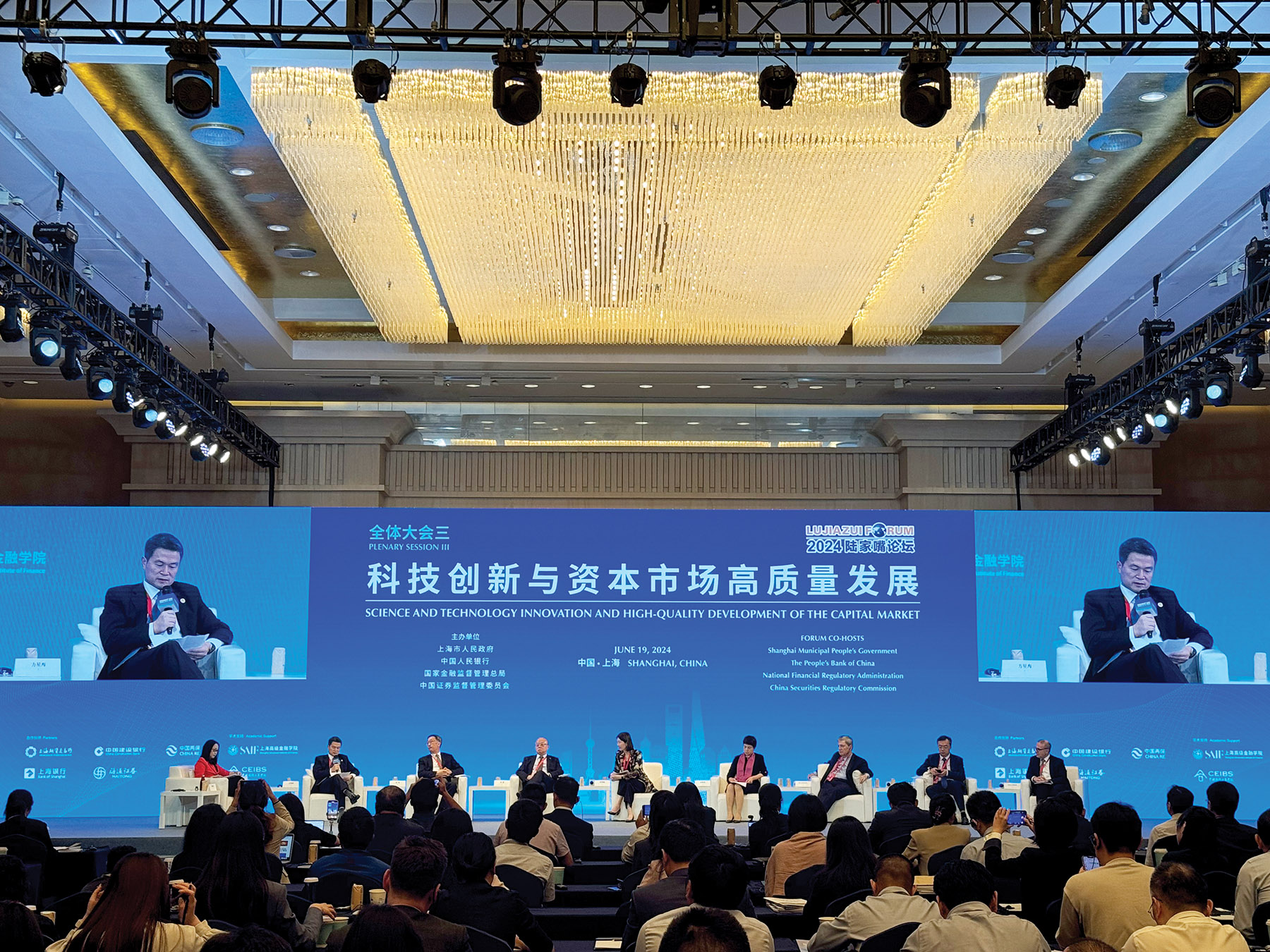At forum, CSRC sees need to accelerate Chinese mainland firms’ overseas listings

Direct financing, such as stock issuance, as well as indirect financing such as bank loans, should be better connected to serve China’s technology advancements and green development, said regulators and market mavens who attended a panel discussion during the two-day 2024 Lujiazui Forum that started on June 19.
According to Fang Xinghai, vice-chairman of China Securities Regulatory Commission, the country’s top securities watchdog, private equity and venture capital are very important to boost technology innovation.
While fundraising is not difficult given China’s huge national savings rate, exit may be a hurdle for private equity and venture capital firms.
To that end, overseas listings can be an option for exit, and the CSRC believes that the pace of filings by Chinese mainland companies for overseas listings should be accelerated, said Fang.
“We encourage more Chinese mainland companies to choose Hong Kong as the overseas listing destination,” he said.
Since China’s new filing regulations for overseas listing took effect on March 31 last year, the CSRC has received such filings from 158
Chinese mainland firms as of June 18, among which 85 floated on the Hong Kong bourse and 73 went public in the United States, said Fang.
Bonnie Y Chan, CEO of Hong Kong Exchanges and Clearing Ltd (HKEX), said the Hong Kong market can provide capital for Chinese mainland companies specializing in green technologies, such as new energy vehicle makers.
Also, Hong Kong’s close ties with other international markets, combined with its financing capability on a global scale, can help Chinese mainland companies in emerging industries to build factories in overseas markets or make other outbound reaches, she said.
Qiu Yong, chairman of Shanghai Stock Exchange, said that they will strive to enhance the market’s inclusiveness to support technology innovation. Meanwhile, supervision is also crucial so as to protect investors’ legal rights and build a healthier capital market ecosystem.
HKEX’s Chan agreed that market inclusiveness is crucial to small and medium-sized technology companies. SMEs usually encounter greater refinancing difficulties, especially when market liquidity is taken up by several industry behemoths.
“An effective market should be able to provide financing to companies of different sizes,” she said.
While China has much potential in financing for technology startups during their early days of development, it should explore more financing channels for these companies when they have entered the later period of development.
The introduction of more private capital can be considered at such a stage, said Kevin D Sneader, president of Asia Pacific Ex-Japan for Goldman Sachs.
Liu Jun, president of Industrial and Commercial Bank of China, said traditional commercial banks should have more in-depth understanding of specific industries in order to better serve companies specializing in new quality productive forces.
But Liu also stressed that the size of loans is still much larger than direct financing. Bank loans can facilitate the development of technology companies throughout their entire life cycle.
Given the 380 trillion yuan ($52.3 trillion) of loans in China, they can be securitized and enter the capital market via direct financing, added Liu.
Zhao Haiying, executive vice-president and chief strategy officer of China Investment Corporation, agreed that indirect and direct financing should be balanced. If direct financing makes up of all the company’s capital source, the shareholders’ interests will be diluted rapidly.


